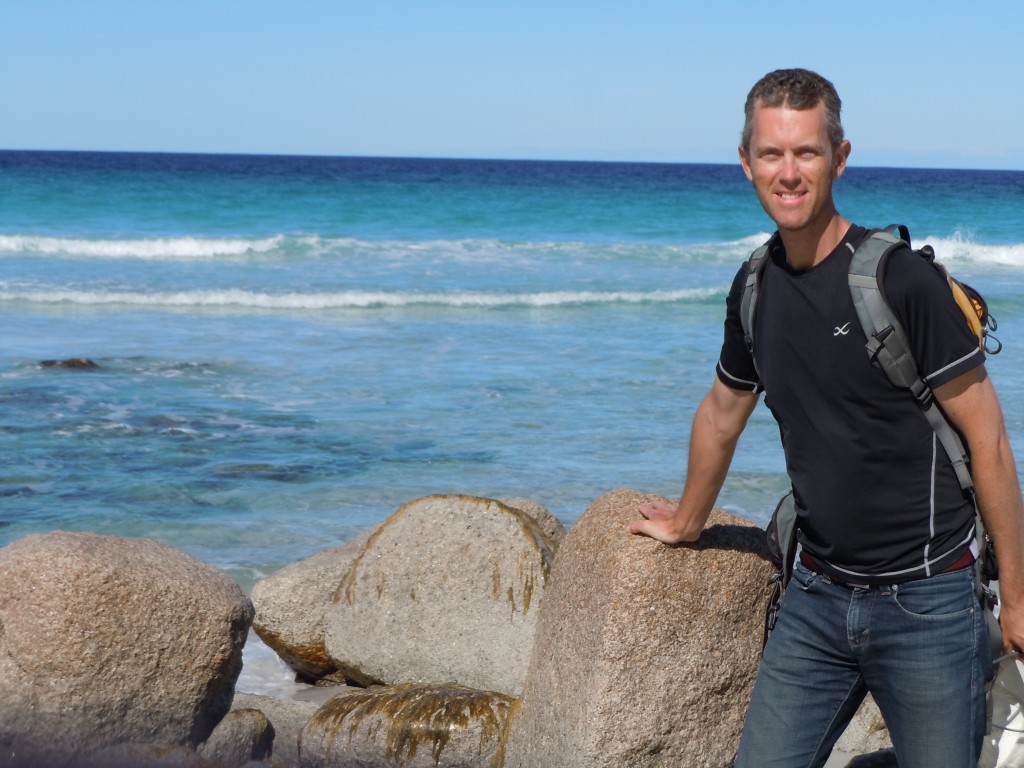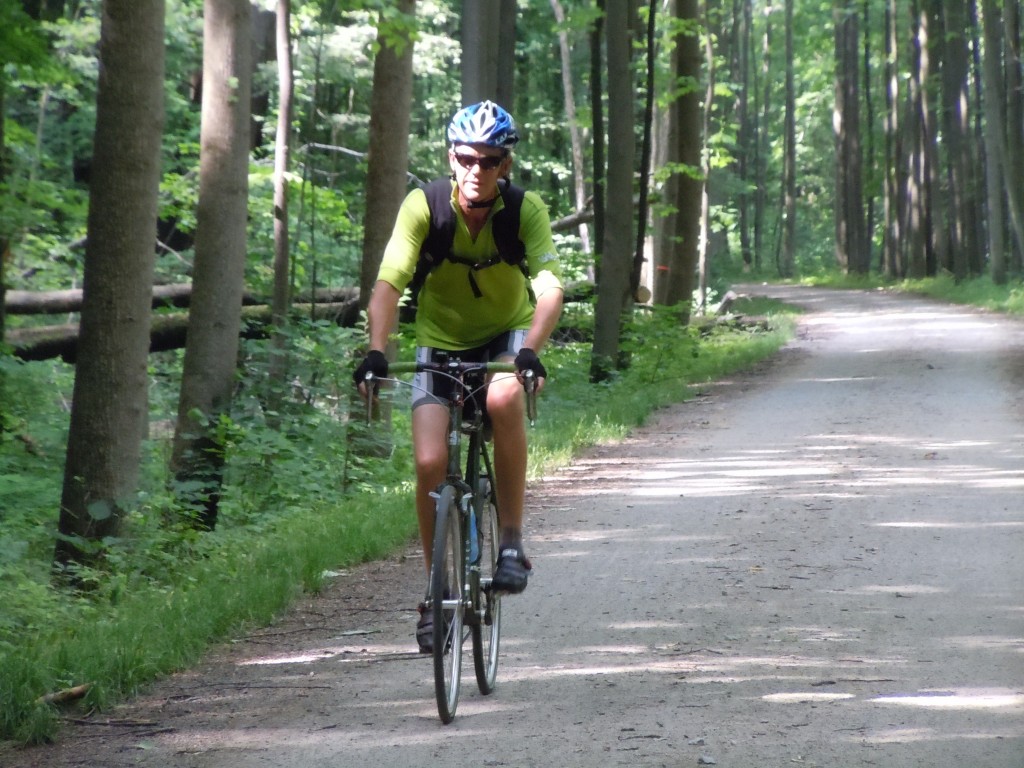One of the most important things you can do for your health is to have a proper diet. What you put into your body affects how you look and feel. Maintaining a healthy weight is especially important for individuals with a bleeding disorder. Being at a healthy weight can reduce the number of bleeding episodes you experience, and eating healthy foods can help build strong muscles, keep your bones healthy, and help you recover faster from a bleed or when you are feeling sick.
In this article, Joe Walsh, a blood brother from Pennsylvania, shares his motivation, experience, and success with a healthy style of eating that works for him and his family. Do the foods you eat help you to feel great physically and emotionally? Is it time to start making changes in your own diet? Here is some food for thought…
_________________________________________________________ I received my liver transplant in 1996 after thirty-two years of living with severe Hemophilia B and Hepatitis B. It is the gift of life for which I am thankful every single day. But thirty-two years with hemophilia had really taken a toll on my joints. In fact, I had already had a total knee replacement on my left knee in 1992 and an arthroscopic clean out of my right ankle in 1995. After my liver transplant, I was much more circumspect about my overall health. I was able to re- main healthy by getting plenty of sleep, making sure I ate the “right” foods, and getting what exercise I could tolerate without being laid up for a few days with excruciating pain in my “crunchy” ankles and rickety right knee.
I received my liver transplant in 1996 after thirty-two years of living with severe Hemophilia B and Hepatitis B. It is the gift of life for which I am thankful every single day. But thirty-two years with hemophilia had really taken a toll on my joints. In fact, I had already had a total knee replacement on my left knee in 1992 and an arthroscopic clean out of my right ankle in 1995. After my liver transplant, I was much more circumspect about my overall health. I was able to re- main healthy by getting plenty of sleep, making sure I ate the “right” foods, and getting what exercise I could tolerate without being laid up for a few days with excruciating pain in my “crunchy” ankles and rickety right knee.
About two years after my transplant, I started to really be aware of my digestive system since it didn’t seem to work like it had in the past. I used to mention it to the doctors, but I thought it was a small price to pay for not being dead. It was an ongoing, but not debilitating, part of my life. My doctors thought there was nothing re- ally to be done, but it did leave me with questions about the possibility that it was food-related. In 2004, I had my right knee replaced and, after an intense rehabilitation, I was able to ride my bike again for the first time in about fifteen years. I was still in pain, but rode as much as I could tolerate because it was one of the few things I could do that did not make my ankles scream .
In 2006, just before her seventh birthday, my daughter was diagnosed with type 1 diabetes. After a lifetime of grappling with hemophilia, I had to develop the same level of mastery over diabetes-the understanding and management of which are entirely about metabolism and food. Careful thought must be given to every single thing that goes in your mouth because it all has an impact. The deeper I got, the more I realized that conventional nutritional wisdom doesn’t hold up. Almost all of the mainstream nutritional information is not based on sound science. Some things have been repeat- ed so often and for so long that people simply assume they are true. Here is what I know. The calories in, calories out model-or the energy balance model that we have learned-is not the way to monitor your diet . It presupposes that all calories are treated the same by your body. Peer reviewed science has found that this is not the case. All calories are not equal.
So, if that paradigm is wrong, what can you do? The main factor to consider is how the body uses fuel for energy. In order to see how this works, you have to understand a bit of the science of metabolism. Your body needs to burn food for fuel . While It prefers to burn fat, it can only do that in the absence of carbohydrates. Because your body was not designed to deal with carbohydrates (other than vegetables), it burns them first to get them out of the system. Your body “sees” all carbs the same: “healthy whole grains,” soda, potatoes, candy bars-it doesn’t matter. They all throw your metabolism out of balance, causing you to gain weight and promoting inflammation. This, as a hemophiliac, is where I took notice, because I know all about inflammation. My chronic pain and inflammation made me wonder how that would be affected by a dietary change .
What I discovered is that reducing carbohydrate intake is a key component to reducing the chronic inflammation (pain) and weight gain that most of us see as an inevitable part of life. One of the most important carbs to avoid in our diets is wheat. Recent science has begun to pinpoint that the gluten/gliaden proteins found in wheat (and several other grains) cause a wide range of inflammatory responses in the body. Rashes, skin problems, arthritic symptoms, headaches, and digestive issues can all be manifestations of the body’s underlying intolerance to this ingredient that the body doe  not see as “food.” Removing wheat from my family’s diet had the most immediate and dynamic impact of any of the changes we have made.
What my family and I have been eating has had a profound impact on our health and well being. It is relatively simple and could work for everyone. We eat well-sourced animal protein (grass-fed beef, fish, pork, game meats, lots of eggs), heaps of healthy fats (coconut oil, butter from pastured cows, lard, olive oil, duck fat, etc.), and all the non-starchy vegetables we want . That is it in a nutshell. We eat a lot of nuts too, but not peanuts,  as they are actually legumes. We do not eat grains, industrial oils (canola, safflower, peanut, corn) or legumes.
This way of eating has been a boon to my diabetic daughter. Her blood sugar is well controlled and she uses much less insulin. For me, the change has been nothing short of remarkable. While my ankles still bother me, my thoughts of ankle replacement are gone. The digestive issues that plagued me have all but disappeared. While I am a huge fan of what medical science has done for my health, I have been amazed at what such a simple change-not endorsed by mainstream science-has done to improve my daily living .
This past May, I had my third knee re- placement. My left knee replacement had worn out, due in part to my increased activity level. Three months to the day, I was back on my bike, and I feel good enough to ride almost every day. I just turned fifty, and I have never felt better. Joe Walsh was born and raised in Philadelphia, but has spent many summers attending, and later working, at Camp Bold Eagle in Michigan. He had Hemophilia B for 32 years, until his liver transplant in 1996. He now spends his time studying the science of nutrition and metabolism, riding his bike, cook- ing, and spending time with his wicked awesome family.Â
Joe Walsh was born and raised in Philadelphia, but has spent many summers attending, and later working, at Camp Bold Eagle in Michigan. He had Hemophilia B for 32 years, until his liver transplant in 1996. He now spends his time studying the science of nutrition and metabolism, riding his bike, cook- ing, and spending time with his wicked awesome family.Â



